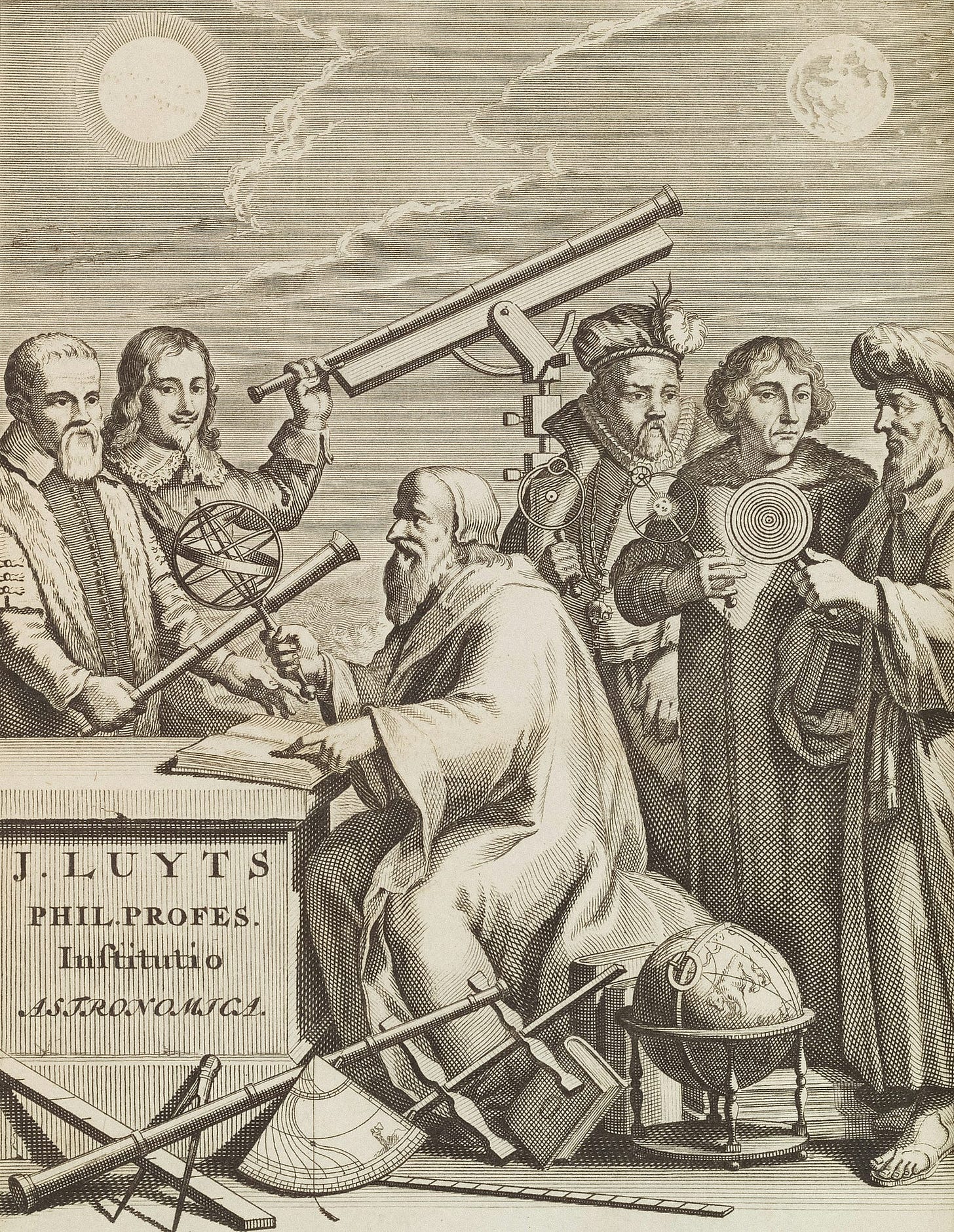Nietzsche, Copernicus, and the Question of the Soul
Aphorisms from Nietzsche's Beyond Good and Evil #10
I would like to continue commenting on aphorisms from Beyond Good and Evil (1886). We continue reading the first chapter of this book: “Prejudices of Philosophers.”
As a reminder, you can find the previous posts on the following page: Nietzsche.
As regards materialistic atomism, it is one of the best-refuted theories that have been advanced, and in Europe there is now perhaps no one in the learned world so unscholarly as to attach serious signification to it, except for convenient everyday use (as an abbreviation of the means of expression) — thanks chiefly to the Pole Boscovich: he and the Pole Copernicus have hitherto been the greatest and most successful opponents of ocular evidence. For while Copernicus has persuaded us to believe, contrary to all the senses, that the earth does NOT stand fast, Boscovich has taught us to abjure the belief in the last thing that “stood fast” of the earth — the belief in “substance,” in “matter,” in the earth-residuum, and particle-atom: it is the greatest triumph over the senses that has hitherto been gained on earth. One must, however, go still further, and also declare war, relentless war to the knife, against the “atomistic requirements” which still lead a dangerous after-life in places where no one suspects them, like the more celebrated “metaphysical requirements”: one must also above all give the finishing stroke to that other and more portentous atomism which Christianity has taught best and longest, the SOUL-ATOMISM. Let it be permitted to designate by this expression the belief which regards the soul as something indestructible, eternal, indivisible, as a monad, as an atomon: this belief ought to be expelled from science! Between ourselves, it is not at all necessary to get rid of “the soul” thereby, and thus renounce one of the oldest and most venerated hypotheses — as happens frequently to the clumsiness of naturalists, who can hardly touch on the soul without immediately losing it. But the way is open for new acceptations and refinements of the soul-hypothesis; and such conceptions as “mortal soul,” and “soul of subjective multiplicity,” and “soul as social structure of the instincts and passions,” want henceforth to have legitimate rights in science. In that the NEW psychologist is about to put an end to the superstitions which have hitherto flourished with almost tropical luxuriance around the idea of the soul, he is really, as it were, thrusting himself into a new desert and a new distrust — it is possible that the older psychologists had a merrier and more comfortable time of it; eventually, however, he finds that precisely thereby he is also condemned to INVENT — and, who knows? perhaps to DISCOVER the new. (Nietzsche, Beyond Good and Evil, trans. Helen Zimmern, The Project Gutenberg, 2003)
Nietzsche begins here by stating that “materialistic atomism” (materialistische Atomistik) has been clearly refuted. Although it was certainly a long and complicated process, he singles out two protagonists:
Copernicus, who resisted the sensory experience of a stationary Earth by proposing a heliocentric model.
Roger Joseph Boscovich, who questioned the classical notion of atoms as indivisible units of matter.
For Nietzsche, both advances represent a victory over sensory perceptions. He calls for an extension of the rejection of materialistic atomism to the rejection of the classical view of the soul. The view, called “soul atomism” (Seelen-Atomistik), is the belief that the soul is an eternal, indivisible, and indestructible entity.
However, he does not recommend abandoning the idea of the “soul” itself. Instead, Nietzsche calls for a re-evaluation, rejecting its Christian aspects and preserving the idea of the soul as a hypothesis to be reflected upon and, if possible, verified. He proposes alternative views of the soul, such as the ideas of a mortal soul, a soul composed of various compounds, or a soul as a social structure of instincts and passions.
Along similar lines, Nietzsche sees the “new psychologist” (neue Psycholog) as having to provide a clear refutation of superstitious, meaning religious, conceptions of the soul, and an entirely new perspective for the study of the soul.
He concludes by explaining that such a psychologist would have to invent new perspectives or knowledge, and he adds, perhaps discover them.
Nietzsche is usually thought of as a literary philosopher and an exponent of early existentialism. But here he shows an interest in the sciences as a means of informing philosophical debate.
Nietzsche’s interest in scientific developments is, of course, philosophical, since scientific ideas serve to support his philosophical arguments, not to engage directly in scientific discourse.
But there is something really interesting about such views of the relationship between philosophy and science. This should lead the reader of Beyond Good and Evil to question, at least in part, the common understanding of Nietzsche’s philosophy.
To be continued…
Your sponsorship means everything. Consider becoming a paid subscriber. You will get access to all my paywalled articles and support my Substack.


